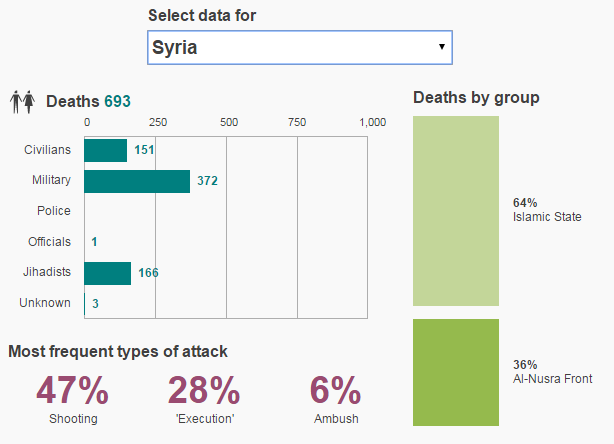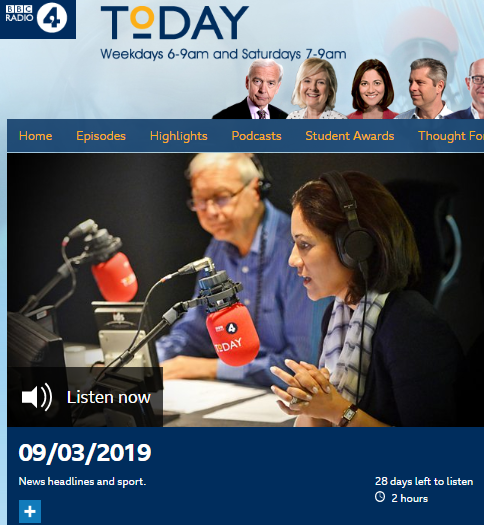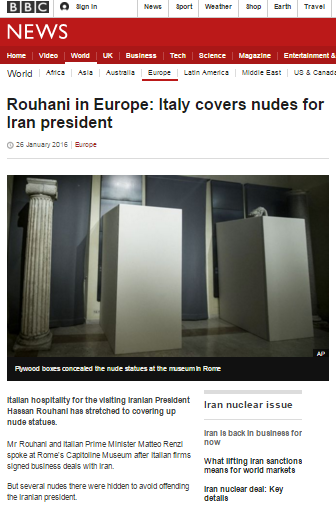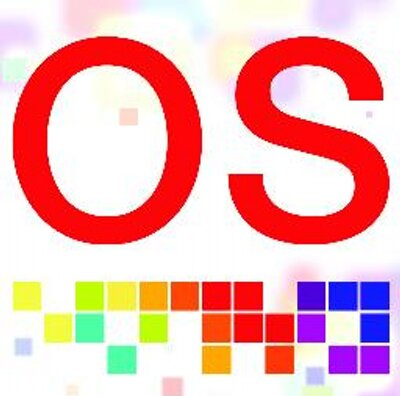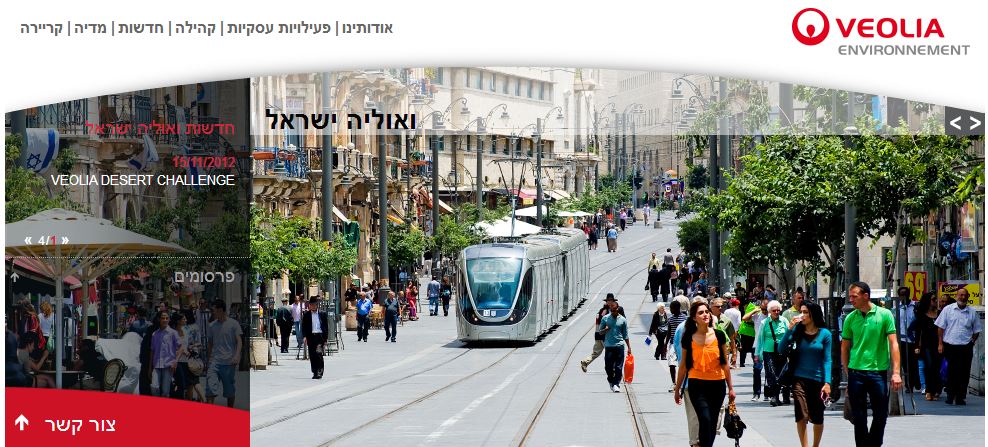On December 9th an article by State Department correspondent Kim Ghattas appeared on the BBC News website under the title “Syria war: Southern rebels see US as key to success“. Despite its title, the report is illustrated using a photograph taken in Damascus in February 2013 rather than in southern Syria.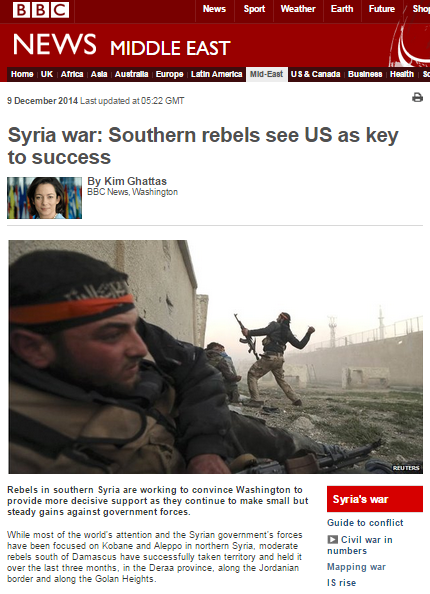
The article opens by informing readers that:
“Rebels in southern Syria are working to convince Washington to provide more decisive support as they continue to make small but steady gains against government forces.
While most of the world’s attention and the Syrian government’s forces have been focused on Kobane and Aleppo in northern Syria, moderate rebels south of Damascus have successfully taken territory and held it over the last three months, in the Deraa province, along the Jordanian border and along the Golan Heights.” [emphasis added]
Audiences will of course be likely to conclude that those “moderate rebels” differ essentially from the Jihadists profiled two days later in the BBC’s special feature on “Jihadist attacks”. One of the groups named in that feature is Jabhat al Nusra which, according to the BBC’s data, was responsible for 36% of the Jihadist attacks in Syria during the month of November.
Much later on in Ghattas’ long article, however, readers discover that one in ten of the rebels operating in southern Syria she previously described as “moderate” actually belong to the Al Qaeda-affiliated Jabhat al Nusra.
“Abu Majd el-Zoubi, a spokesman for the Southern Front, acknowledged that the Nusra Front operated in the region but insisted they were only 10% of the fighting force and that the rebels were all “100% Syrians”.”
That information in turn conflicts with a previous statement (still uncorrected) made by the BBC in its profile of Jabhat al Nusra (not updated since its publication in April 2013), according to which the Free Syrian Army does not cooperate with the Jihadist group.
“Al-Nusra’s connection to al-Qaeda has led the Free Syrian Army (FSA) opposition to distance itself from the movement.
“We don’t support the ideology of al-Nusra,” FSA spokesman Louay Meqdad said.
“There has never been and there will never be a decision at the command level to coordinate with al-Nusra.””
The take-away message for BBC audiences in Ghattas’ report is that the ability of the rebels in southern Syria to challenge the Assad regime is being hampered by a lack of American support.
“The growing coalition of 58 US-backed rebel groups south of Damascus known as the Southern Front of the Free Syrian Army (FSA) is inching closer to the capital but with restricted military supplies and only half-hearted political support from the White House, they admit their progress will be limited.
“For three years most factions in the opposition have been asking Washington ‘what can you do for us?'” said one activist speaking by phone from the Middle East.
“We want to make Washington want to help us because of what we achieve on the ground,” added the activist, who is close to the rebel groups.”
Notably, Ghattas backs up her message by linking to an article produced by Charles Lister of the Doha branch of the Qatari-funded Brookings Institute.
“There are growing warnings that the US is on the verge of losing the last remnants of influence it has on the ground in Syria.
Reluctant backing has led to a lack of trust by the moderate rebels, and the newly announced Pentagon programme to train and equip new rebel recruits only starts in the spring of 2015.
So the southern front is even more crucial for any short-term Western strategy in Syria, especially if it still envisages putting the squeeze on the government in Damascus.”
However, Ghattas fails to inform BBC audiences that as well as funding the think-tank which produced that article, Qatar has also funded some of the extremist groups promoted by Lister as ‘invaluable actors’ in the battle against the Assad regime; Jabhat al Nusra and Ahrar al-Sham.
Jabhat al Nusra is currently designated as a terrorist organization by Australia, Canada, France, Russia, Saudi Arabia, Turkey, the UAE, the UK and the US. Ghattas’ simplistic (though revealing) admonishment of American policy towards “moderate rebels” in southern Syria fails to mention the very relevant fact that those forces include a designated terrorist organization defined by the BBC itself as a Jihadist group.

